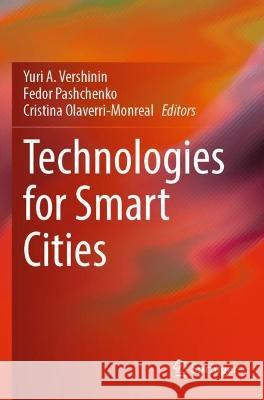Technologies for Smart Cities » książka
topmenu
Technologies for Smart Cities
ISBN-13: 9783031055188 / Angielski / Miękka / 2023
Technologies for Smart Cities
ISBN-13: 9783031055188 / Angielski / Miękka / 2023
cena 402,53
(netto: 383,36 VAT: 5%)
Najniższa cena z 30 dni: 385,52
(netto: 383,36 VAT: 5%)
Najniższa cena z 30 dni: 385,52
Termin realizacji zamówienia:
ok. 22 dni roboczych.
ok. 22 dni roboczych.
Darmowa dostawa!
This book gives readers an overview about technologies that are useful for developments related to Smart Cities.
Some technologies are already available, such for example, as smart meters for electricity and gas in buildings. But there are possibilities to incorporate existing devices into wider networks with other smart devices that currently operate independently. This in turn will considerably improve the reduction of the energy consumption in buildings, reduction of emission pollutions in cities and improvement of the well-being of people. The other objective of this book is to introduce readers to new technologies which are not yet implemented in areas related to the efficient functioning of cities. For example, areas related to Intelligent Transport Systems are mostly developed for the optimization of the traffic flow, reduction of accidents on roads, improvement of the safety of drivers and related to road transportation problems. The rapid advances in Blockchain technologies are also covered.











